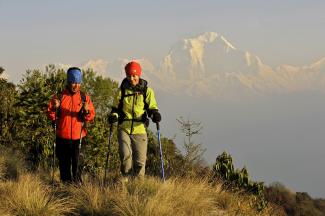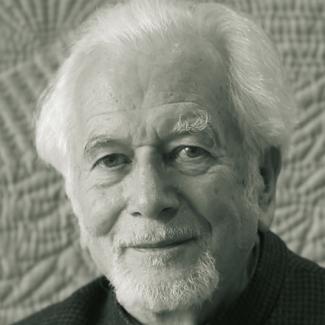Comment
Second chance

The Maoists have disappointed Nepalis. Their violent insurrection lasted for many years, and put an end to the monarchy in 2008. The rebel movement then became a political party, and tried to become part of a democratic polity. Its leaders failed spectacularly however. After winning the elections six years ago, they did not manage to bring about social justice. The revolutionaries proved to be just as corrupt and power-hungry as the politicians they had previously attacked. No new constitution was adopted.
After the elections in November last year, the Maoists are now merely Nepal’s third strongest political force. The two strongest parties are the Nepali Congress and the Communist CPN-UML, which both belong to the old political establishment. They have formed a coalition government. The prime minister is Sushil Koirala, a veteran leader. The Maoists could have joined the coalition, but they preferred to become the opposition. It remains to be seen whether they will manage to assume a constructive role in parliament or whether their former revolutionary attitudes will resurge. The new coalition government promises to pass a new constitution within one year. It must prove, however, that it is not stuck in thinking along caste lines and old corrupt practices. To bring about real progress, it must also overcome outdated attitudes.
Kanak Mani Dixit, a prominent publisher and journalist, speaks of Nepal’s “second chance”. In his view, the crucial challenge is to build infrastructure in rural areas so agriculture and small business can prosper. The poor population in particular needs such opportunities. The new government has promised to take care of this matter.
Dixit also says that socio-economic thinking must change. For too long, according to him, a cult of donorship has marked the country: many charitable, international organisations are active in Nepal’s mountains. Dixit wants Nepal to develop a sense of self-determination and policy ownership.
The situation of many young people is desperate. New schools have been built, but educated people don’t want to continue to live the harsh lives of smallholder farmers in the mountains. Kathmandu, the capital city, is the heart of the country’s only major urban agglomeration. Many youngsters move there, but far too many do not find solid livelihoods. Their flight deprives the villages of promising young inhabitants and, at the same time, overburdens urban structures. Kathmandu was a comfortable small-townish place 20 years ago. Today, it is facing huge infrastructure challenges. Power cuts for up to 12 hours daily are normal.
For many young people who pass through the city, Kathmandu is just a launching pad for finding employment in the Gulf States, Malaysia or Australia. Jobs abroad mean money. The price, however, is disrupted families. Moreover, many migrants must cope with exploitative labour conditions, bad housing and inadequate social services.
Of the many village people who stay in Kathmandu, most depend on tourism. They work as porters, cooks and tour guides in the trekking business. Some achieve modest prosperity. The tourism season, however, only lasts four months, and unemployment looms large. Even at the peak of the season, many who are willing to work cannot find a job. The new government must fast bring about more – and more diversified opportunities.
Kanak Mani Dixit insists that Nepal must not be considered in isolation, but rather as a part of South Asia. This region, he argues, has a coherent history, a cohesive culture and a potential to counterbalance China in economic and socio-cultural terms. He wants to see India, the region’s giant, cooperate with its smaller neighbours in a sense of partnership. To date, however, Nepal hardly offers its people attractive prospects. Even the capital city with its tourism industry is basically marked by one thing: poverty.
Martin Kämpchen is a writer and translator who also does freelance journalism. He lives in India. m.kaempchen@gmx.de








